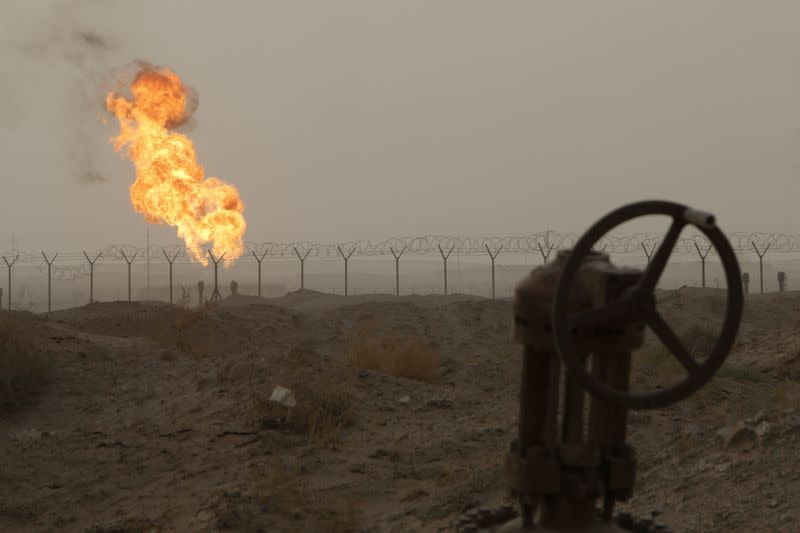Oil prices settle higher; signs of tighter supply end 3-day swoon

By Shariq Khan
NEW YORK (Reuters) -Oil prices settled higher on Tuesday, bouncing off multi-month lows hit in the previous session, as investor attention turned to supply tightness and financial markets recovered from their recent slump.
Brent crude futures rose by 18 cents, or 0.2% to settle at $76.48 a barrel. U.S. West Texas Intermediate futures gained 26 cents, or 0.4%, to close at $73.20 per barrel. Both benchmarks broke a three-session declining streak.
Iran's vow of retaliation against Israel and the U.S. following the killing of two militant leaders has raised concerns that a wider war is brewing in the Middle East, which could have a direct impact on supplies from the region.
Lower production at Libya's 300,000 barrel-per-day (bpd) Sharara oilfield is also adding to concerns of supply shortages. Libya's National Oil Corp said on Tuesday it would start to gradually decrease production at the field due to protests.
Recent declines in crude oil and fuel inventories at major trading hubs are also supporting oil prices.
"Oil fundamentals are still suggesting an undersupplied oil market, with oil inventories still falling," UBS analyst Giovanni Staunovo said.
Gasoline demand in the U.S. was likely at over 9 million barrels per day last week, feeding confidence in the economy, Staunovo said.
Global oil inventories decreased by around 400,000 bpd in the first half this year, according to U.S. Energy Information Administration (EIA) estimates published on Tuesday. It expects stockpiles to decline by around 800,000 bpd in the second half of the year. [EIA/M]
The agency lowered its average oil price forecasts for this year and next year, citing recent declines precipitated by economic concerns. It still expects higher prices in coming months. Brent spot prices will range between $85 and $90 per barrel by the end of the year, the EIA said.
On Monday, Brent futures slumped to their lowest since early January and WTI futures had touched their lowest since February, as a global stock market rout deepened on growing concerns of a potential recession in the U.S., the world's largest petroleum consumer.
Still, Goldman Sachs said its economists see recession risk as limited and believe oil prices will find support in coming weeks from strong demand in the West and India.
(Additional reporting by Ahmad Ghaddar, Robert Harvey, Arunima Kumar, Yuka Obayashi and Trixie Yap; Editing by Jonathan Oatis, Mark Potter and David Gregorio)
